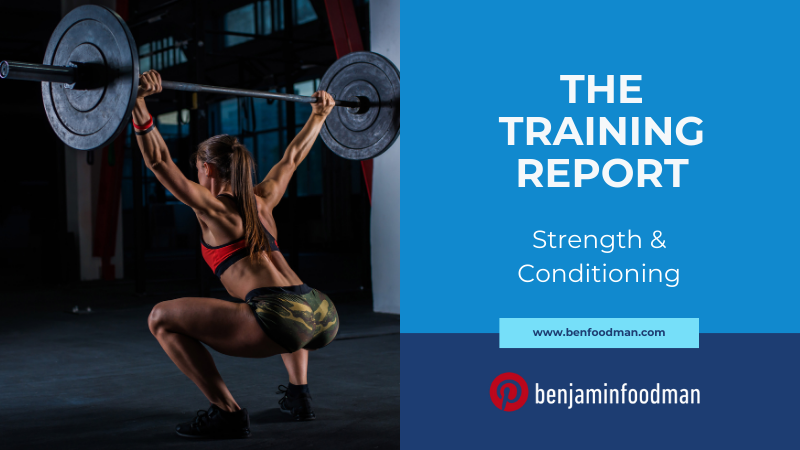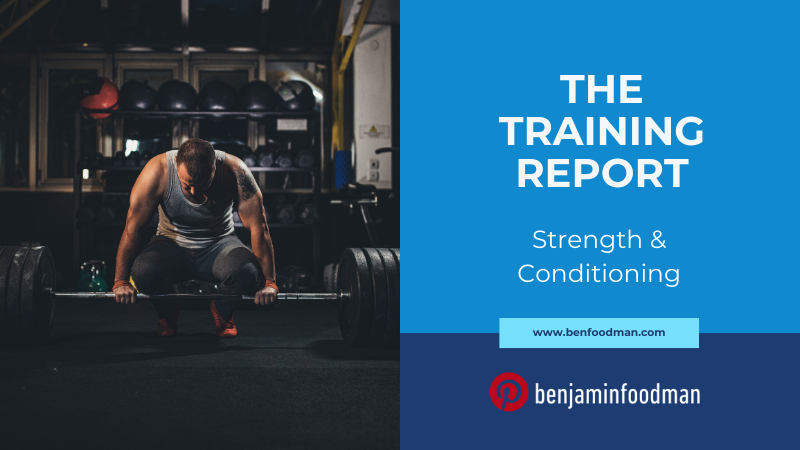Strength & Conditioning - Olympic Weightlifting Program Design (Bulgarian Style)
About the Author
Ben Foodman is a licensed psychotherapist & performance specialist. He owns his private practice located in Charlotte North Carolina where he specializes in working with athletes to help them overcome mental blocks (the yips), PTSD, ADD / ADHD and achieve flow states through the techniques of Brainspotting & Neurofeedback. If you are interested in services, use the link here! Enjoy the article below!
Introduction: Athlete Performance, Olympic-style Weightlifting Bulgarian Style
Athletes are turning to alternative forms of strength & conditioning to enhance their performance outcomes. One of these methods of training is Olympic-style weightlifting. Many athletes and strength coaches recognize that Olympic weightlifting offers many different benefits that can enhance explosive power, strength, balance and overall athleticism. While the lifts offer many benefits, there are other aspects of Olympic-style weightlifting training that have been utilized in different performance spaces to offer alternative approaches for reaching peak potential.
One of these aspects is referred to as Bulgarian-style Olympic weightlifting. For this issue of the Training Report I wanted to take some time to introduce this style of weightlifting for interested athletes and coaches. First in part I., I will review what Bulgarian-style Olympic weightlifting is. Second in part II., I will review how athlete populations can benefit from this style of training. Finally in part III., I will provide a sample Bulgarian-style Olympic weightlifting program that athletes and coaches can use as a reference for designing a periodization block. With that said, let’s review what this style of training actually is.
Part I. What Athletes Should Understand About Olympic Weightlifting Bulgarian Style
As the sport of Olympic-style weightlifting has developed over the years, different training regimens have evolved through this process, one of those obviously being Bulgarian-style training. Athletes that incorporate this type of training for Olympic-style weightlifting can best understand what this regimen is from the following excerpt: Bulgarian athletes have several workouts a day with a total duration of up to 6 h (see table 5.1). To the best of our knowledge, the weightlifters from Greece and Turkey who were successful at the 2000 and 2004 Olympic Games train similarly. The exercise sessions are limited to 60-min, or even 45-min, periods. Two sessions in the morning and two in the afternoon are separated by 30-min rest intervals.
The author continues: The underlying assumption is that the elevated blood testosterone level can be maintained for 45 to 60 min only and that a 30-min rest is needed to restore the testosterone level. (This assumption is not proven; the precise nature of the elevated testosterone level during a strength workout is not well understood. In general, the elevation may be induced either by increased testosterone production or by a decreased amount of testosterone acceptors in muscles or other tissues.) During the 30-min intervals the athletes may choose to lie down and listen to music. To avoid cooldown, they are warmly dressed; their relaxed legs are slightly raised, supported by a small bench. Now that we have established a baseline understanding of this type of periodization, we need to review why many athlete populations will beenfit from this type of strength training programming.
Part II. Potential Exercise Psychology Benefits For Athlete Mental & Physical Performance
Different athlete populations and athletes at different levels of competition have varying schedules. Depending on the type of sports population you are in this style of training offers multiple benefits: this type of weightlifting can help athletes spread out the load of intensity, meaning that heavier work can be incorporated while also offering adequate rest periods, athletes can focus on potentially stimulating development of Type II muscle fibers at higher levels than traditional methods, while also accruing the predictable benefits of enhanced strength potential.
But one of the other potential benefits that exercise science research needs to investigate are the psychological benefits. Specifically how athletes develop the mentality to lift heavy weights for sustained periods of time. Regularly engaging in high load, low repetition weightlifting movements can help athletes learn how to enhance their focus, develop more mental toughness, and develop higher levels of kinesthetic awareness through the Olympic weightlifting movements. Now that we have reviewed the benefits, let’s finally review a sample Bulgarian-style program design.
Part III.
Sample Bulgarian Program Design
Time: Monday, Wedneday & Friday - Tuesday, Thursday & Saturday
9:00-10:00: Snatch - Snatch
10:00-10:30: Rest - Rest
10:30-11:30: Clean and Jerk - Clean and Jerk
11:30-12:30: Exercise - Exercise
12:30-1:00: Rest - Exercise
1:00-5:00: Rest - Rest
5:00-5:30: Exercise - Exercise
5:30-6:00: Exercise - Rest
6:00-6:30: Rest - Exercise
6:30-8:30: Exercise - Rest
Total exercise time: 6 hours - 4.5 hours
Note To Reader:
If you are an athlete reading this segment of the TRAINING REPORT, hopefully this content was helpful! I put the Training Report together because I felt like many of the discussions on issues such as the Yips/mental blocks, strength training & other subject matter on athlete performance concepts were really missing the mark on these ideas (e.g. how trauma is the direct cause of the Yips). If you are interested in learning more, make sure to subscribe below for when I put out new content on issues related to sport psychology & athlete performance! Also, if you are looking to work with a mental performance specialist, you are in the right place! USE THIS LINK to reach out to me to see if my services are the right fit for your goals!
ARE YOU ON THE LIST?
Make sure you’re signed up to Ben’s mailing list to receive news & updates on new strategies in sport psychology, upcoming workshops & products. Don’t wait, sign up now!


























